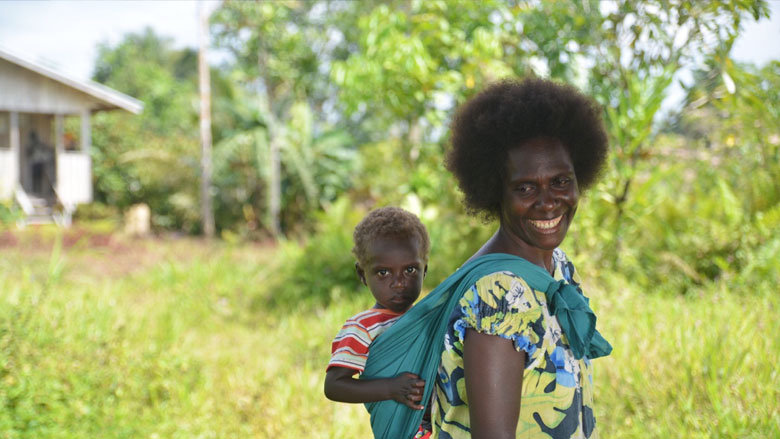Bougainville, Papua New Guinea, March 8, 2016 – “I was pregnant with my first son in the jungle,” whispers Francisca Kameula, a mother-of-four from the remote community of Rovo, in the mountainous central hills of Bougainville Island.
“I gave birth to him there too. All the old women from my village helped me. We had no access to any health services, no access to medicines, and we never had any antenatal checks.”
Francisca’s story is all-too-common across the Autonomous Region of Bougainville, in the far east of Papua New Guinea. The region is only beginning its recovery from the ten-year conflict that killed more than 10,000 civilians, and left many thousands more fleeing for their lives – just as Francisca and her community did – into the thick, mountainous jungle that covers the island.
“Time after time, women had difficult childbirth experiences in the jungle. Many times the mother or child died during childbirth,” says Francisca.
For the people of rural communities like Rovo the lack of health services is an ever-present threat. Bougainville has some of the highest rates of maternal mortality in Asia-Pacific – with 55 deaths for every 1,000 children under the age of one, just eight medical staff per 21,000 people, and one in four pregnancy cases in Bougainville’s Buin Hospital classified as an emergency.
Yet just as the development challenges are immense, so is Bougainvilleans’ determination to improve life across the region. This determination is not, however, easily spotted on Francisca Kameula’s face. She speaks in hushed tones about her life before, during and after the conflict, and about her dreams for her and her children’s future. But ask her about the lack of health services in her community, and her eyes widen, with fierce determination shining through.
“Because of the civil war, there were no government health services. So we could not access clinics or even basic posts for medicines. For pregnant women at that time, we just had to have our babies in the bush,” she says.

